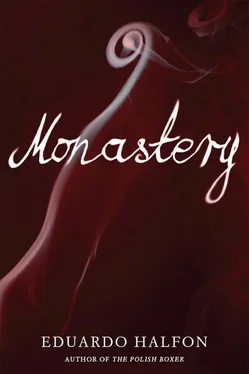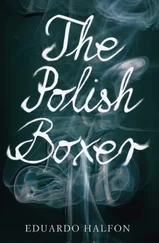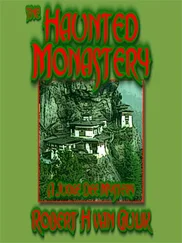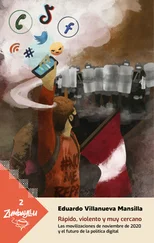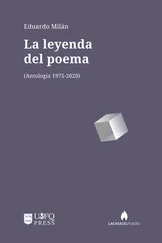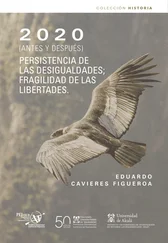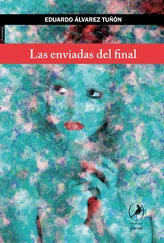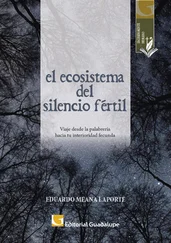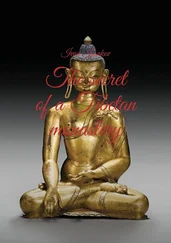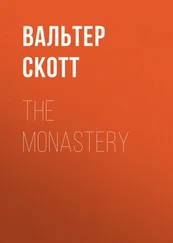I turn my gaze back to the papers on my desk.
It’s January 1888. Chekhov receives that letter from his friend Pleshcheev, arguing against triviality, insisting that he continue with his long, serious story. And Chekhov writes back to him: Many thanks for your kind, sweet note. What a shame it didn’t come three hours earlier. Just imagine, I was scribbling a poor tale for the Peterburgskaya Gazeta . As the first of the month is approaching, with debts to be paid, I played the coward and sat down to write a piece of work in haste. But it doesn’t matter: the story took me no more than half a day.
This rather poor tale, this triviality that was a mere six folios in length, this piece of work written in haste that only took half a day’s work and seemingly no effort at all, ended up being one of his masterpieces, the story “Sleepy”.
I look at the pieces of paper in disarray on my desk, some of them already crumpled, some of them stained with coffee rings. I see the Chekhov book, open to the first page of that story. Night. That simple, that dry. With a single word, he begins this story about dreams and delirium, violence and poverty, crying out for life and crying out for death; about the nameless boy and the nursemaid Varka, who lulls him in his cradle; about children.
I look outside again, down from this tenth-floor window. There are seagulls in the air. At the Loire docks, I watch the coming and going of yachts, sailboats, tugboats, small fishing vessels, cargo ships. There’s a drawbridge, which at the sound of a bell is raised and opens the way to the locks. There is a grand-looking white cruise ship ( Norwegian Epic , it says in sky blue letters), anchored down, surrounded by cranes, in the final stages of construction. I think about another cruise ship (the Champlain ), which, setting out from this same port, transported another Russian writer, in 1939, to New York (Nabokov recalled with nostalgia the gardens of this Breton town). But the only thing that interests me is the old submarine base. I look at it, and it’s easy to imagine the black submarines coming in and out beneath the Loire’s waters. Multiple swastikas fluttering in the sea breeze. And my Polish grandfather, still a young man, still skinny after his release from Sachsenhausen concentration camp, close to Berlin (there’s a black-and-white photograph of my grandfather in Berlin, soon after his release from Sachsenhausen: young, thin, dressed in jacket and tie, riding a bicycle on some deserted Berlin street; he isn’t smiling, but the expression on his face is serene), getting ready to weigh anchor from here, from Saint-Nazaire, to America: first to New York, where he spent a few weeks, where he bought the black-stone ring he would wear for the rest of his life, on the pinkie finger of his right hand, as a sign of mourning; and then, just because he had an uncle there, to Guatemala. And it’s also easy to imagine my Polish grandfather walking over and around that imposing gray-brown cement structure — a structure, in fact, that proved indestructible. It could never be knocked down. Not by the constant bombardments of the Allied aircraft (which did manage to flatten most of the town of Saint-Nazaire). Nor later by the French themselves, who continue to insist that its demolition would have been extremely costly, almost impossible, due to the roof and walls of reinforced concrete, which in some places are up to nine meters thick.
The longer you look at one object, wrote Flannery O’Connor, the more of the world you see in it. And so I keep looking at the submarine base outside my window. I can’t help it. Or I don’t want to help it. I know there’s something important in that old submarine base, something symbolic or perhaps poetic, something at once ephemeral and indestructible. Like in a story. Like in a good story. I see there’s nobody there anymore, no children playing on the roof, no children anywhere, no longer any life.
The clunky brown Citroënwas parked in front of Hotel Kadima.
I opened the door and had to move a small suitcase from the passenger seat before I could get in. I asked Tamara what the suitcase was for. A surprise, she said, tossing it into the back. So, where are you taking me? I asked, but Tamara just started the engine and smiled again and asked about my brother. So that was your brother with you at the airport? I said that it was, that it was my younger brother, that I was fourteen months older. You look exactly alike, she exclaimed. Yes, I said, at first glance, though we’re actually very different. Different how? she asked, jamming on the brakes. My brother’s taller, I said. Darker. Sweeter. Freer. And he’s got the hands of a god. Tamara gave a quick laugh. What about your sister? Oh, my sister, I started to say, and then stopped, thinking or maybe feeling for the perfect word. My sister is the most intrepid, I could have said. My sister is the most ethereal, I could have said, but ethereal as in mercury, as in a dry leaf in the breeze, as in those little habits like cracking your knuckles or running your tongue across your upper lip, habits that don’t mean anything and at the same time mean everything. When’s the wedding? Tamara asked. Tomorrow afternoon, I said, but I’m not going. She turned to me, confused. What are you saying? She was driving atrociously, erratically, speeding up and then braking violently at the last minute, jerking the gear-shift back and forth as though in a rage. I thought I might get queasy. I decided not to go to the wedding, I said, gripping the door handle tightly and overstating my resolve. I can’t go, or I don’t want to go, I said, I’m not sure which. She mumbled something. Maybe a reproach. Maybe just a groan. Maybe she didn’t believe me. After a pause, I asked her about her friend Yael. What friend Yael? Your friend, I said, Yael, the one who was traveling with you when we first met. I don’t know who you’re talking about, Eduardo. When I met you, I had just finished my military service and I was traveling through Central America. Alone.
I didn’t understand. I thought she was kidding. I thought about saying Yael, that girl who worked in the Scottish bar in Antigua, with my same last name, with the beautiful shoulders and the silver belly-button ring.
Tamara leaned over to the glove compartment and took out a small green box. She had no idea she’d just run a stop sign. She pulled halfway over to the curb and parked appallingly. She leaned over to the glove compartment again and took out a stack of papers or maybe postcards. Look at this. And she turned on the hazard lights.
THEY WERE BLACK-AND-WHITE photos printed on cardboard. They still had a chemical smell. They were all out of focus, out of frame. In one I could make out the profile of a nose; in another, a half smile; in another, part of a neck; in another, one thick dark eyebrow. I didn’t understand. What is this? I asked. A friend of my father took them, Tamara said. An old Jew, she said, and then, like a quick jab, she added: A blind man. She wasn’t smiling. Her hands were playing with the small green box. A blind photographer? I asked. Can there even be blind photographers? A car behind us honked, perhaps insulting us for her terrible parking. His pictures are all of Palestinian children, Tamara said. He travels to Palestinian cities and towns and takes pictures of Palestinian children. Once, I went with him and my father to Ramallah. He would sit on a bench or sometimes he’d sit on the ground and wait for a boy or girl to come up to him, and then suddenly he’d hand them his camera, an old Leica. The children were as fascinated by his camera as they were by his trust and by his blindness. And while they were touching the camera, he would reach out a hand and start touching them. Their hair, their arms, their shoulders, especially their faces. Slowly. Gently. With something akin to affection. He was getting to know them with his hands, I suppose, with his touch. The children hardly noticed, or just giggled. Then they’d give him back the camera and he’d take a single photo of each child. Or I guess of a single feature of each child. Very quickly. Almost without their realizing it. Later, on our way back home, I asked him how he decided which feature to photograph. Tamara paused, waiting for a noisy truck to pass. First he told me he didn’t know. Then, after considering it for a little while, he said that it was always the most beautiful feature, of course. Then, after another little while, smiling, he said one’s eyes could always find the most beautiful feature. Tamara opened her door. Those are copies of the pictures we took that day in Ramallah, she said. Do you like them? I was going to say yes and no. I was going to say that Paul Wittgenstein, after losing his right arm in World War I (What kind of philosophy must it take to overcome that? his brother Ludwig wrote), not only learned to play the piano with one hand but commissioned great composers — like Prokofiev, Strauss, Ravel — to write him oeuvres and concertos for the left hand. I was going to say that, according to the notebooks of Thelonius Monk (or Melodius Thunk, as his wife used to call him), a genius is the one most like himself. But I just stuck the pictures back into the glove compartment with the slew of maps and papers and candy wrappers and chocolate wrappers and something that looked like two condoms, still sealed in plastic.
Читать дальше
